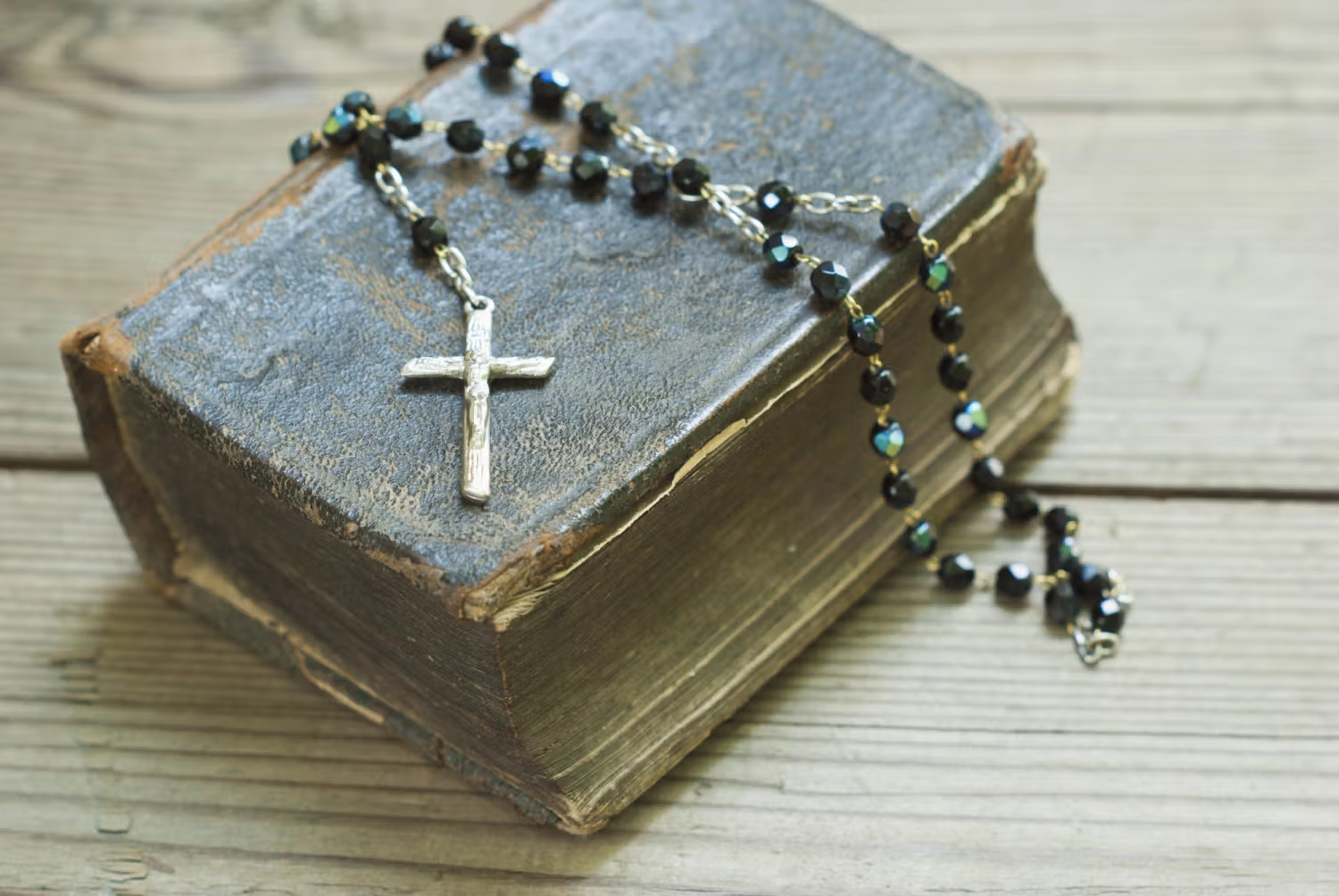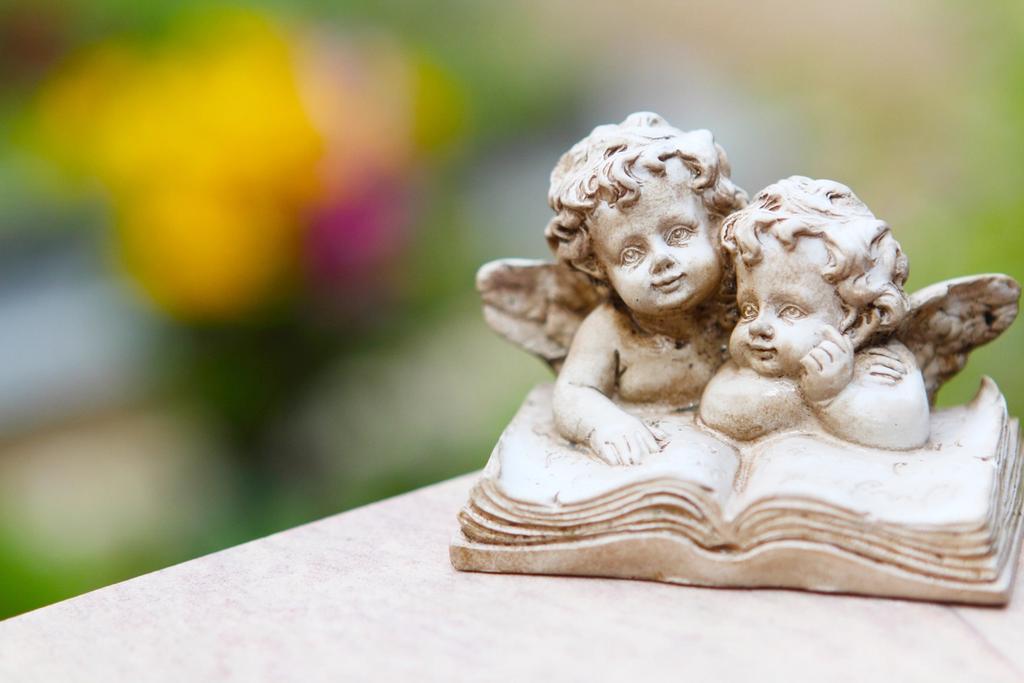Catholic Funeral Traditions
Catholics commonly believe that death is the passing from the physical world to the afterlife, where the deceased’s soul will live in Heaven, Hell, or Purgatory.

While there are differing degrees of orthodoxy within Catholicism, Catholics commonly believe that death is the passing from the physical world to the afterlife, where the deceased’s soul will live in Heaven, Hell, or Purgatory. At the end of time, when Christ returns, many Catholics believe that the bodies of the dead will be resurrected.
When Death Is Imminent
When a Catholic is approaching death, a priest should be brought in to administer special rites and Holy Communion to the dying person.
After Death Occurs
After the death, a priest should be contacted so that the necessary rites can be administered and the funeral planning process can begin. It is common for local churches to have relationships with Catholic or Catholic-friendly funeral homes, and the deceased’s priest, your priest, or a local priest can point you in the right direction for finding a funeral home.
To find a funeral home use our resource: Guide: Finding a Funeral Home
When To Hold A Catholic Funeral
Funeral Masses may not be held on Holy Thursday (the Thursday before Easter), Good Friday (the Friday before Easter), Holy Saturday (the Saturday before Easter), or Easter Sunday. Funeral Masses are also prohibited on the Sundays during Advent (the period starting on the fourth Sunday before December 25 through December 25), Lent (the 40-day period before Easter), and the Easter Season (the 50-day period after Easter). A Funeral Mass may be held on Ash Wednesday (the first day of Lent), though ashes would not be distributed in the church.
Organ Donation
Though there is some disagreement within the Catholic Church on the acceptability of organ donation, many Catholic leaders have accepted the medical definition of “brain death” (the end of brain function as the end of life) and see organ donation as a final charitable act that one may make.
Embalming
Embalming is acceptable in the Catholic faith, and depending on the rules of the state and/or the funeral home that you’re working with, embalming before the Vigil may be necessary.
To learn more about this topic see our article: Embalming
Cremation
Historically, the Catholic Church has not supported cremation. However, these days it is acceptable for a Catholic to be cremated. That said, most churches prefer that the body be present for the Funeral Mass, meaning that cremation should occur after the Funeral Mass. Remains should be buried in the ground or at sea or entombed in a columbarium, and should not be scattered.
To learn more about this topic see our article: Cremation
Viewing, Wake, Or Visitation Before A Catholic Funeral
The Vigil is a prayer service usually held the evening before the funeral. Much like a viewing or a wake, family and friends gather in the home of the deceased, in the funeral home, or in the church to pray and remember the deceased. A priest or deacon usually presides over the prayers, though a layperson with knowledge of the prayers and traditions may preside in the event that a priest or deacon is not available.
Eulogies And Tributes At A Catholic Funeral
The Vigil is the appropriate time to eulogize the deceased or pay any fraternal or civil tributes. Eulogies are not delivered at the funeral service.
To learn more about this topic see our article: Eulogies, Tributes, and Other Speeches
Where To Hold A Catholic Funeral
Catholic funerals are held in Catholic churches, though they may also be held in the chapels of Catholic assisted living or care facilities or in the chapels at Catholic cemeteries.
The Catholic Funeral Service
Priests lead the Funeral Mass, and may also lead the funeral liturgy (service). If a priest is not available, deacons may lead the funeral liturgy. If a deacon is not available, a layperson with knowledge of the liturgy and traditions may lead the service. However, only a priest or a deacon may delivery the homily (sermon), which will also serve to remember the deceased by incorporating examples from the deceased’s life.
Specific Catholic Funeral Arrangements
Throughout the service, no matter who is leading, laypeople may participate as readers, musicians, pallbearers, ushers, and in other usual roles. The music played at the Funeral Mass should be appropriate church music; popular or non-religious music is not appropriate. However, the family of the person who died may coordinate with the priest to have special or especially meaningful hymns, psalms, or readings included in the Mass.
Interment
The Rite of Committal is the Catholic interment service, at which the body is finally buried or interred. The Rite of Committal may take place at a gravesite, mausoleum crypt or tomb, or columbarium (in the event that the body was cremated). Family and friends gather together with a priest or deacon to pray over the body one last time. In order to make the burial or interment site a sacred place for the deceased, the priest or deacon will bless the place before the body or remains are placed inside. After the site has been blessed, the body or remains will be committed to the earth. The priest or deacon will then recite more prayers, and then everyone will join in to say the Lord’s Prayer.
Mourning Period And Memorial Events
There is no prescribed mourning period or memorial events in Catholicism.
Are you planning a Catholic funeral? For help, see our article Plan the Funeral or Memorial Service.
Are you attending a Catholic funeral? For etiquette tips, see our article Attending a Religious Funeral.
- How To Express Sympathy: What To Say And What...We’ve compiled a list of things to say—and things to avoid saying—when...Read more
- A Quick Overview Of Proper Funeral EtiquetteFunerals are emotionally complex, and knowing how to act can present a...Read more
- The Five Stages Of GriefAfter experiencing a loss, it's common to go through a range of emotions...Read more
- Funeral Pre-Planning Cheat SheetPlan now, rest later.Read more



